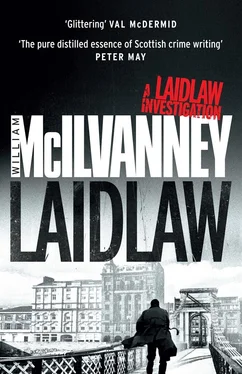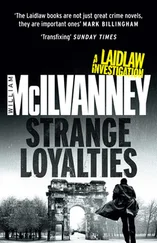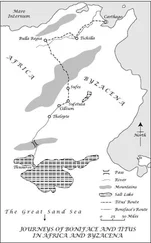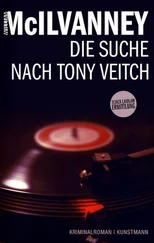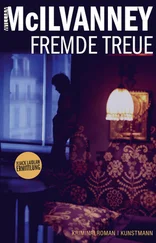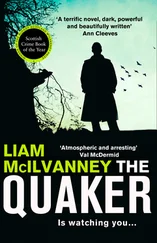William McIlvanney - Laidlaw
Здесь есть возможность читать онлайн «William McIlvanney - Laidlaw» весь текст электронной книги совершенно бесплатно (целиком полную версию без сокращений). В некоторых случаях можно слушать аудио, скачать через торрент в формате fb2 и присутствует краткое содержание. Год выпуска: 1977, ISBN: 1977, Издательство: Sceptre, Жанр: Полицейский детектив, на английском языке. Описание произведения, (предисловие) а так же отзывы посетителей доступны на портале библиотеки ЛибКат.
- Название:Laidlaw
- Автор:
- Издательство:Sceptre
- Жанр:
- Год:1977
- ISBN:0857869868
- Рейтинг книги:5 / 5. Голосов: 1
-
Избранное:Добавить в избранное
- Отзывы:
-
Ваша оценка:
- 100
- 1
- 2
- 3
- 4
- 5
Laidlaw: краткое содержание, описание и аннотация
Предлагаем к чтению аннотацию, описание, краткое содержание или предисловие (зависит от того, что написал сам автор книги «Laidlaw»). Если вы не нашли необходимую информацию о книге — напишите в комментариях, мы постараемся отыскать её.
Laidlaw — читать онлайн бесплатно полную книгу (весь текст) целиком
Ниже представлен текст книги, разбитый по страницам. Система сохранения места последней прочитанной страницы, позволяет с удобством читать онлайн бесплатно книгу «Laidlaw», без необходимости каждый раз заново искать на чём Вы остановились. Поставьте закладку, и сможете в любой момент перейти на страницу, на которой закончили чтение.
Интервал:
Закладка:
‘The doctor will be here any minute. She will not be moved until then. I thought your wide experience would have taught you that.’ Milligan was enjoying the reprimand. ‘She cannot be moved until she is certified dead. Meanwhile, I don’t think she’s suffering too much discomfort.’
‘That’s because she’s dead,’ Laidlaw said. He looked towards the crowd. ‘It’s just that I wouldn’t want her father to have to buy a ticket to view the corpse. I’ll bring him to the mortuary.’
McKendrick had liked the exchange. Because he had felt sick when he saw the girl, he felt as if Laidlaw had been speaking for him. He had heard Milligan dismiss Laidlaw as an amateur and he was glad to find it was a slander. In the car he would have liked to talk to Laidlaw but he respected the silence until Laidlaw broke it.
‘What’s your name, then?’ Laidlaw asked.
‘McKendrick.’
‘Your first name.’
‘Ian.’
‘Well, Ian. You can wait in the car when we get here if you want. It’s up to you.’
McKendrick thought about Milligan.
‘I think I’d better come in. If you don’t mind.’
‘Suit yourself. I was just thinking how nice it is delivering grief to folk. I thought we might spare you this once.’
‘I suppose I have to get used to it,’ McKendrick said. ‘It’s not that I don’t appreciate your idea. It’s just. . well. I have to get used to it.’
‘You’re probably right, Ian. Just don’t get too used to it. I know folk who don’t even notice any more. They deliver dead bodies as if they were butcher-meat.’
Drumchapel engulfed them like a quicksand.
‘Some place,’ Laidlaw said.
‘Aye, there must be some terrible people here.’
‘No,’ Laidlaw said. ‘That’s not what I mean. I find the people very impressive. It’s the place that’s terrible. You think of Glasgow. At each of its four corners, this kind of housing scheme. There’s the Drum and Easterhouse and Pollok and Castlemilk. You’ve got the biggest housing scheme in Europe here. And what’s there? Hardly anything but houses. Just architectural dumps where they unloaded the people like slurry. Penal architecture. Glasgow folk have to be nice people. Otherwise, they would have burned the place to the ground years ago.’
Laidlaw recognised Bud Lawson’s car. They parked behind it and went up the outside stairs to the entry. The Lawsons lived downstairs, right-hand door. Laidlaw pushed the bell but they couldn’t hear any sound. He glanced at McKendrick, pressed again and had his hand raised to knock when the door opened.
‘Ah’m awfu’ sorry. Have ye been ringin’? Bell’s broken. Jist makes a wee kinna buzzin’ noise. Ah’ve been at ma man tae get it-’
She had seen McKendrick’s uniform. She was a small woman, her face looking older than the rest of her. Her body seemed somehow to hang on her, like somebody else’s clothes. Talking about the bell, her apology had found a surprisingly intense focus and then her concentration had moved just as wilfully to McKendrick. Laidlaw had seen that quality of arbitrarily shifting perspective before, always in people whose environment was putting them under pressure. It was as if they had been overtaken by the hardness of their experience and mugged by it, so that they lived the rest of their lives concussed.
Now you could see the truth of why they were here arrive in her eyes. They didn’t have to say anything. She knew the worst because she always expected it.
‘Oh my God,’ she was saying. ‘Ah knew it, Ah knew it, Ah knew it. Oh my God! Whit’s happened to ’er?’
‘Mrs Lawson?’ Laidlaw was saying.
‘Oh my God! Something terrible has happened.’
‘Wumman. Come oot the road.’
Bud Lawson stood between her and them. Behind him they could still hear her mouthings, but as if a door had closed on her.
‘Whit is it?’
‘Could we come in, Mr Lawson?’ Laidlaw asked.
McKendrick closed the door and they all moved awkwardly into the living-room. Mrs Lawson seemed almost blown before them, like paper in the wind. She ended up aimlessly by the old-fashioned, scarred sideboard, shaking her head at a china figurine, an old woman seated on a bench. Bud Lawson was standing in the middle of the floor.
‘I’m sorry, Mr Lawson,’ Laidlaw said. ‘I’m very sorry. I think Mrs Lawson should sit down.’
‘Jist tell us whit ye came tae tell us.’
‘It’s about Jennifer, I’m afraid. We think we may have found her. I’m sorry. But if it’s her. . then she’s dead.’
Mrs Lawson’s voice rose and fell in a sound McKendrick couldn’t bear. All that happened in Bud Lawson’s face was that a knot formed in his right cheek where the jaw was clenching. He turned his head slightly away from where his wife was standing.
‘How did this happen?’ he asked.
Laidlaw shook his head and walked towards Mrs Lawson. She let herself be led and put in a chair, crying. Laidlaw left his hand on her shoulder.
‘How did this happen?’
‘No, Mr Lawson,’ Laidlaw said. ‘The first thing is for you to identify her. If it’s Jennifer. You can give your wife the details then. I’ll tell you in the car.’
Bud Lawson got his jacket from a chair and put it on. He was ready to go.
‘Mr Lawson,’ Laidlaw said. ‘What about getting a neighbour in? For your wife.’
Bud Lawson looked at him as if he didn’t understand. Laidlaw nodded to McKendrick. McKendrick went across the entry and told the woman there. She explained to her family and came across at once, sitting on the arm of Mrs Lawson’s chair with her arm round her. They left her saying, ‘Sadie, Sadie, oh Sadie.’
McKendrick went into the back seat of the car. He sat staring at the cratered back of Bud Lawson’s neck, as if it was the surface of a strange planet.
8
The High Court of Glasgow is at Jocelyn Square. It is an imposing building, its main entrance pillared and approached by wide steps, its side doors having carved above them ‘South Court’ and ‘North Court’. The suggestion is vaguely Grecian, implying the long and formidable genealogy of justice. On its right the Clyde that made the city flows tamely under bridges.
The Court confronts Glasgow Green like a warning. The Green itself is gated and railinged now, the city’s commemorative window-box of a once wilder place. From that green root the miles of stone have spread, north to Drumchapel, Maryhill, Springburn, Balornock and Easterhouse, south across the river to Pollok, Castlemilk, Rutherglen and Cambuslang, still part of the same confrontation between nature and law, the Green and the Court.
Adjoining the Court is a small, single-storey building, standing unobtrusively on a corner like a casual bystander. The lower parts of its walls are old weathered stone. The upper parts are red brick. It’s as if a workman were wearing spats. Above the doorway is the word ‘Mortuary’, discreet as a wink.
This is the police mortuary, the tradesmen’s entrance to the Court, as it were. Here are delivered the raw materials of justice, corpses that are precipitates of strange experience, alloys of fear and hate and anger and love and viciousness and bewilderment, that the Court will take and refine into comprehension. Through the double glass doors come those with a grief to collect. They take away the offal of a death, its privateness, the irrelevant uniqueness of the person, the parts that no one else has any further use for. The Court will keep only what matters, the way in which the person became an event.
To come in here is to be reminded that the first law is real estate, and people are its property. It was a reminder that always sickened Laidlaw. They stood in the entrance hall with its polished floor. A man was here to look at his dead daughter and they must ring a bell, request an audience. Laidlaw’s finger on the brass button jarred himself. It summoned him to make a fruitless choice: indulge in grief by proxy or imitate a stone. The shirt-sleeved, waistcoated man who came recognised him, unlocked the second set of glass doors and ushered Bud Lawson into calamity and Laidlaw into his own small dilemma.
Читать дальшеИнтервал:
Закладка:
Похожие книги на «Laidlaw»
Представляем Вашему вниманию похожие книги на «Laidlaw» списком для выбора. Мы отобрали схожую по названию и смыслу литературу в надежде предоставить читателям больше вариантов отыскать новые, интересные, ещё непрочитанные произведения.
Обсуждение, отзывы о книге «Laidlaw» и просто собственные мнения читателей. Оставьте ваши комментарии, напишите, что Вы думаете о произведении, его смысле или главных героях. Укажите что конкретно понравилось, а что нет, и почему Вы так считаете.
